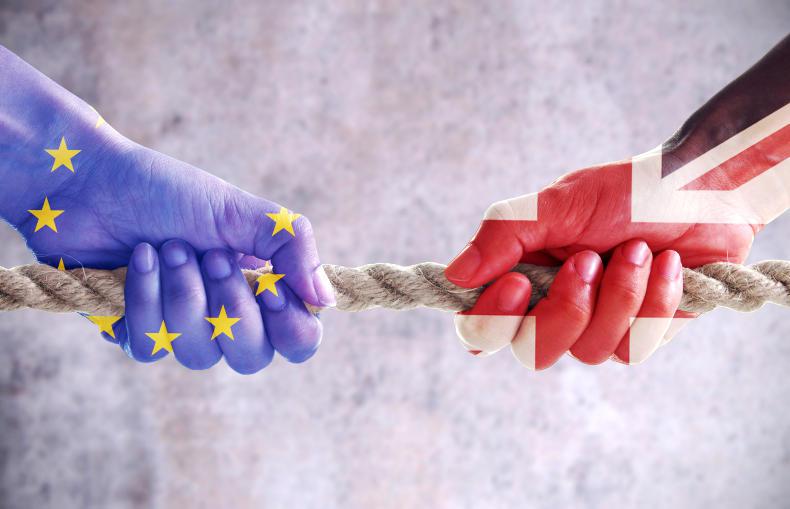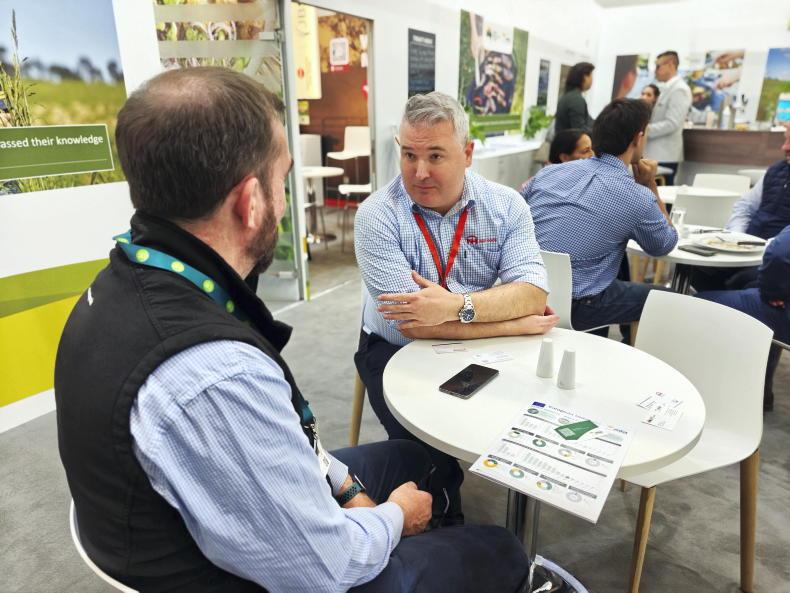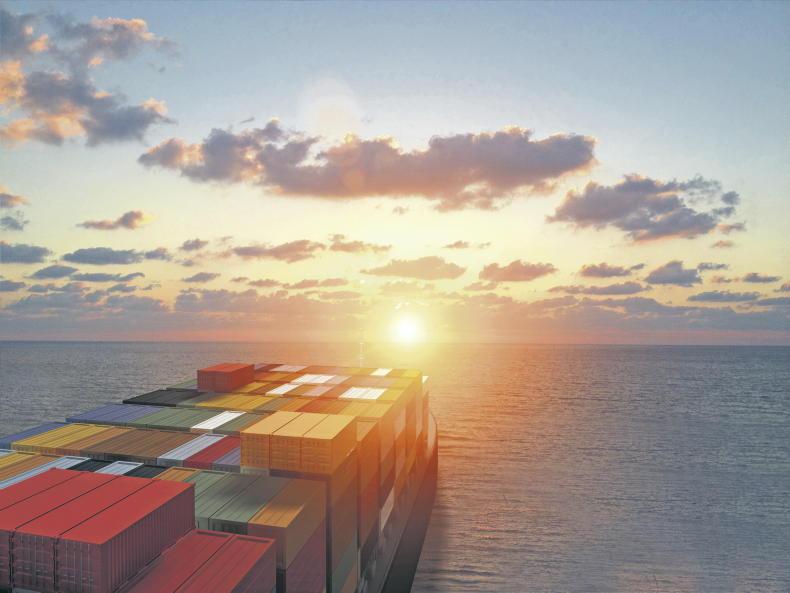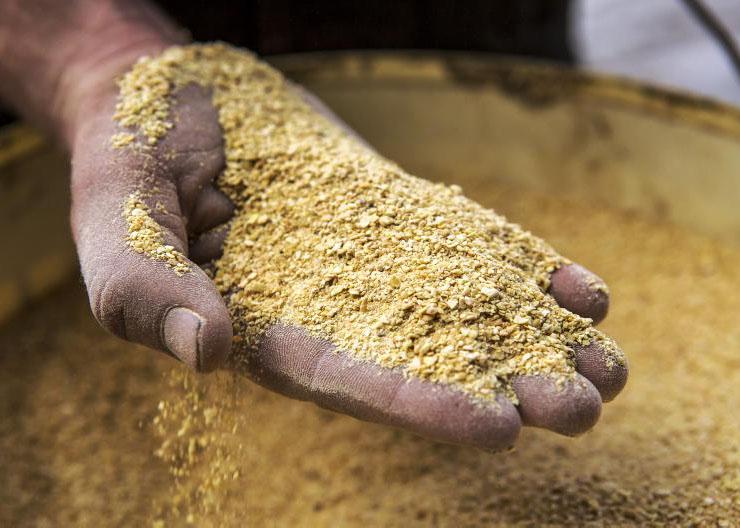This week’s EU-UK trade talks was a low-key affair in London, with some more positive signals emerging, particularly in relation to fisheries.
Of course, if the EU is to make any concession in this area, it will mean the UK giving ground elsewhere and here the positions remain polarised.
The reality for trade is that logistical problems will be in place from 1 January 2021. The single market has meant that sending something from London to Berlin was the same as sending it from London to Manchester.
Even if there are no tariffs agreed between the EU and UK for goods traded between them, there will still be a bureaucratic customs declaration process that involves checks to a greater or lesser extent at border crossing points.
Huge delays
Irrespective of how minimal these checks are, they will still cause huge delays at crossing points. This will be particularly problematical at Northern Irish ports which act as an EU border inspection point in order to avoid checks on the physical Irish border.
The extent of the inspection process for third countries selling to the EU varies between countries depending on risk and type of trade deal that is in place.
Therefore, a small percentage of goods coming in from Canada are checked because of the comprehensive trade deal, whereas there are, at times, 100% of checks on meat coming in from Brazil.
Value of UK market
The consequences for Irish farmers will be felt from whenever the UK diverges from the EU in trading relationships with other countries.
They have already indicated that Australia and New Zealand can expect a significant increase in sales of beef and sheepmeat to the UK – this will devalue the market for Irish exporters, and indeed UK producers as well, even if UK produce continues to retain a premium price in the market place, it will be on top of a lower base.
UK policy
It will be interesting to observe UK policy on imports of agricultural produce. There are indications of significant division even in a strong pro-Brexit government.
Already, former DEFRA secretary Theresa Villiers has split with the government on the apparent willingness to accept US standards for beef and chicken.
The National Farmers Union (NFU) secured 1m signatures in a petition to retain (EU) standards and an advisory committee has been established with strong support from a core of Conservative MPs.
At some point in the trade talks between the UK and US, a decision will have to be made on either accepting US standards on beef and chicken or face the prospect of the USA failing to make any sort of meaningful deal. This will be a divisive political debate in the UK.
Irish interests
Irish farmer interests are best served by the UK remaining aligned with the EU as far as possible, excluding separate trade deals and standards.
Unfortunately, this isn’t compatible with UK ambitions for global trade deals. Similarly, it is difficult to see how the EU can relent given its need to keep the same rules for all of the now 27 members of the EU single market.
The reality is that if the UK market becomes completely open, it is devalued for domestic and Irish production alike. It is impossible for anything to replace the status quo.
Read more
Brexit: green lanes to be cleared for live exports and food
New body to scrutinise UK trade policy
This week’s EU-UK trade talks was a low-key affair in London, with some more positive signals emerging, particularly in relation to fisheries.
Of course, if the EU is to make any concession in this area, it will mean the UK giving ground elsewhere and here the positions remain polarised.
The reality for trade is that logistical problems will be in place from 1 January 2021. The single market has meant that sending something from London to Berlin was the same as sending it from London to Manchester.
Even if there are no tariffs agreed between the EU and UK for goods traded between them, there will still be a bureaucratic customs declaration process that involves checks to a greater or lesser extent at border crossing points.
Huge delays
Irrespective of how minimal these checks are, they will still cause huge delays at crossing points. This will be particularly problematical at Northern Irish ports which act as an EU border inspection point in order to avoid checks on the physical Irish border.
The extent of the inspection process for third countries selling to the EU varies between countries depending on risk and type of trade deal that is in place.
Therefore, a small percentage of goods coming in from Canada are checked because of the comprehensive trade deal, whereas there are, at times, 100% of checks on meat coming in from Brazil.
Value of UK market
The consequences for Irish farmers will be felt from whenever the UK diverges from the EU in trading relationships with other countries.
They have already indicated that Australia and New Zealand can expect a significant increase in sales of beef and sheepmeat to the UK – this will devalue the market for Irish exporters, and indeed UK producers as well, even if UK produce continues to retain a premium price in the market place, it will be on top of a lower base.
UK policy
It will be interesting to observe UK policy on imports of agricultural produce. There are indications of significant division even in a strong pro-Brexit government.
Already, former DEFRA secretary Theresa Villiers has split with the government on the apparent willingness to accept US standards for beef and chicken.
The National Farmers Union (NFU) secured 1m signatures in a petition to retain (EU) standards and an advisory committee has been established with strong support from a core of Conservative MPs.
At some point in the trade talks between the UK and US, a decision will have to be made on either accepting US standards on beef and chicken or face the prospect of the USA failing to make any sort of meaningful deal. This will be a divisive political debate in the UK.
Irish interests
Irish farmer interests are best served by the UK remaining aligned with the EU as far as possible, excluding separate trade deals and standards.
Unfortunately, this isn’t compatible with UK ambitions for global trade deals. Similarly, it is difficult to see how the EU can relent given its need to keep the same rules for all of the now 27 members of the EU single market.
The reality is that if the UK market becomes completely open, it is devalued for domestic and Irish production alike. It is impossible for anything to replace the status quo.
Read more
Brexit: green lanes to be cleared for live exports and food
New body to scrutinise UK trade policy










SHARING OPTIONS